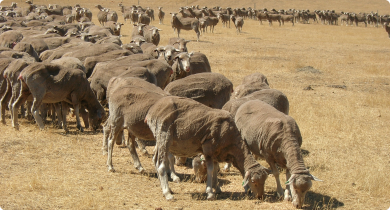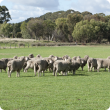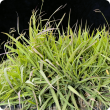Pasture management
The long term productivity and quality of pastures relies on good management skills. A well managed enterprise will maximise the economic viability of grazing systems through increased production of livestock. In cropping systems, shifting pastures towards legume dominance is also important. To successfully grow annual and perennial pastures, it is important to consider the influence of factors such as soil, climate, pests and grazing on each particular species.
The Department of Primary Industries and Regional Development provides information and advice to assist farmers to make appropriate decisions about weed management, fertiliser application, grazing systems, pest and disease management, seed production and seed harvesting. Meeting each species’ requirements is essential in order to realise the potential benefits from improved pastures.
Filter by search
Filter by topic
- Livestock & animals (18) Apply Livestock & animals filter
- Livestock species (16) Apply Livestock species filter
- Pasture species (11) Apply Pasture species filter
- Livestock management (11) Apply Livestock management filter
- Climate, land & water (11) Apply Climate, land & water filter
- Pests, weeds & diseases (8) Apply Pests, weeds & diseases filter
- Soils (7) Apply Soils filter
- Sheep (7) Apply Sheep filter
- Dairy cattle (7) Apply Dairy cattle filter
- Managing soils (7) Apply Managing soils filter
- Grains (6) Apply Grains filter
- Feeding & nutrition (6) Apply Feeding & nutrition filter
- Weeds (5) Apply Weeds filter
- Soil nutrients (5) Apply Soil nutrients filter
- Crop weeds (5) Apply Crop weeds filter
- Pasture establishment (5) Apply Pasture establishment filter
- Grains research & development (4) Apply Grains research & development filter
- Livestock research & development (3) Apply Livestock research & development filter
- Irrigated crops (3) Apply Irrigated crops filter
- Soil acidity (2) Apply Soil acidity filter
- Lupins (2) Apply Lupins filter
- Horticulture (2) Apply Horticulture filter
- Water management (2) Apply Water management filter
- Wheat (2) Apply Wheat filter
- Water (2) Apply Water filter
- Vegetables (2) Apply Vegetables filter
- Diseases (2) Apply Diseases filter
- Grapes & wine (2) Apply Grapes & wine filter
- Beef cattle (2) Apply Beef cattle filter
- Control methods (2) Apply Control methods filter
- Climate & weather (2) Apply Climate & weather filter
- Crop diseases (2) Apply Crop diseases filter
- Fruit (2) Apply Fruit filter
- Land use (1) Apply Land use filter
- High rainfall pastures (1) Apply High rainfall pastures filter
- Irrigation (1) Apply Irrigation filter
- Nursery & cutflowers (1) Apply Nursery & cutflowers filter
- Herbicides (1) Apply Herbicides filter
- Measuring and assessing soils (1) Apply Measuring and assessing soils filter
- Management & reproduction (1) Apply Management & reproduction filter
- Canola (1) Apply Canola filter
- Biosecurity (1) Apply Biosecurity filter
- Barley (1) Apply Barley filter
- Biosecurity & quarantine (1) Apply Biosecurity & quarantine filter
- Chemicals (1) Apply Chemicals filter
- Dry seasons and drought (1) Apply Dry seasons and drought filter
- Fire (1) Apply Fire filter






